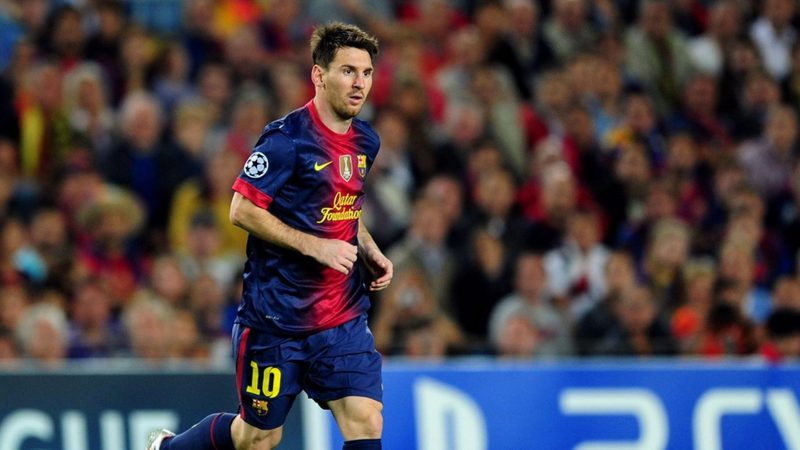
Lionel Messi’s tearful departure from FC Barcelona in August 2021 was greeted with shock and disbelief around the world.
Lionel Messi arrived at Barcelona in 2000 as a 13-year-old and went on to become the greatest player in the rich history of the club.
During his time with the Catalans, Messi broke several club records, including the most appearances (778) by a player, most goals (672), and most titles (34) among others.
Rightfully considered by many as the greatest Barca player of all time, Messi departing from the club was at one point in time unimaginable.
However, that’s not how things transpired as Messi headed for a Barca exit in August 2021. Buy just why did Lionel Messi leave Barcelone in 2021?
Here’s a closer look at the circumstances surrounding Messi’s tearful departure from Barcelona.
Why did Lionel Messi leave Barcelona in 2021?
To put things forth in the simplest terms, Barcelona simply couldn’t afford to keep Messi in the team any longer as their wage budget wasn’t enough to accommodate the Argentine superstar.
While Messi entered the summer of 2021 as a free agent, it was widely believed that he would strike some sort of a deal with the Catalans eventually.
However, the club at the time was embroiled in economic turmoil and very soon the extent of the mess became clear for everyone to see.
As per La Liga’s rules, clubs can only spend only some of their revenue to sign players and on wages. Herein lay the issue for Barcelona as the club’s financial struggles came to light.
Barcelona’s serious economic challenges in 2021 were further exacerbated by COVID-19 and it was one of the many reasons behind Messi’s departure.
Furthermore, Barca’s responsibility in the transfer market that saw them spend huge amounts on buying players and the offering of huge contracts to both new and existing members of the squad didn’t help their cause either.
To navigate these various challenges, the Argentine superstar even reportedly offered to take a staggering 50 per cent pay cut and agree to a new contract extension.
But La Liga’s stringent player registration rules prevented this from happening and prohibited the Spanish club from keeping their club icon at Camp Nou.
Ahead of every season, La Liga’s economic control department reviews the profits, losses and debts of each club and lays down a cost limit for them to ensure the long-term sustainability and financial health of the club.
For Barcelona, La Liga’s economic control department laid down a limit of €144 million (roughly $160 million) per annum in wages to be spent on its players, coaches, physios and reserve teams for the 2021-22 season.
Messi’s wages, despite a reported 50 per cent pay cut, was at around €50 million (roughly $55 million), which left very little room to accommodate Barcelona’s Philippe Coutinho, Antoine Griezmann and Ousmane Dembele, let alone the support staff, coaches, physios and the reserve teams, who all were legally entitled to be paid that season.
Barcelona president Joan Laporta, in a news conference before Messi’s teary-eyed farewell, said that the only way to keep Messi at Camp Nou was to accept La Liga’s proposal of selling 10% of the league's business to investment fund partners.
“The club is above players, coaches and presidents," Laporta explained. “It would not be in Barca's best interests to receive some money and affect (revenue from) television rights for the next 50 years. It is not something we can do (to keep Messi). It's too risky.."
A few days later, Messi signed a two-year deal with French club Paris Saint-Germain (PSG) with a net salary of $34.6 million per season.
Two years later, Barcelona’s financial situation has improved slightly and Messi’s contract with PSG is set to expire. If some reports are to be believed, Messi’s house in Barcelona is already being prepared for a homecoming and he is set to return to Camp Nou for the final spell of his career.
In his first spell, Messi won 10 La Liga titles and four UEFA Champions League titles with Barcelona. Messi made a record 778 appearances for the club and also scored a record 672 goals across competitions.
Photo credit: Alamy




















